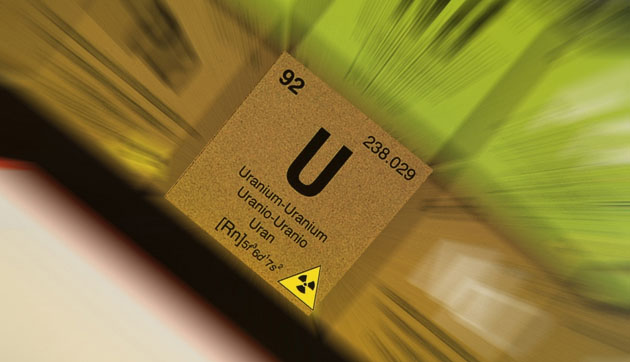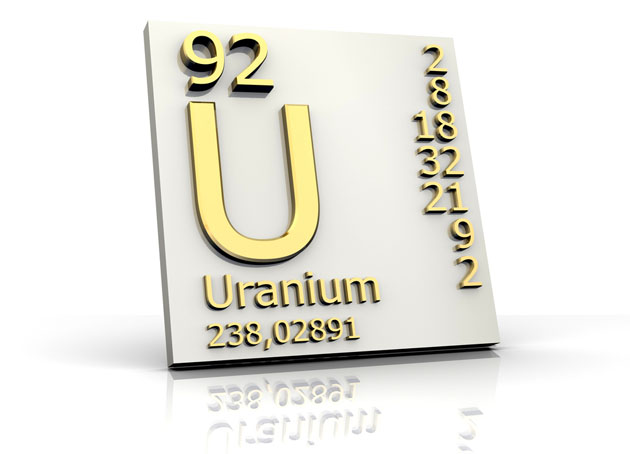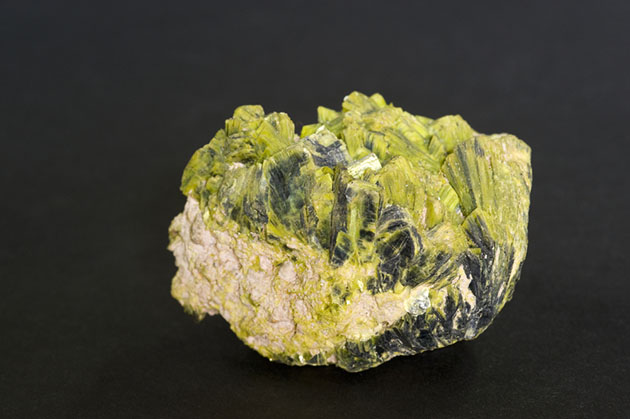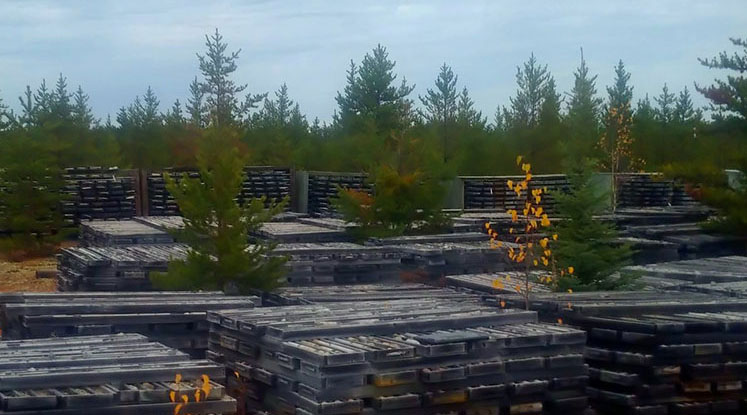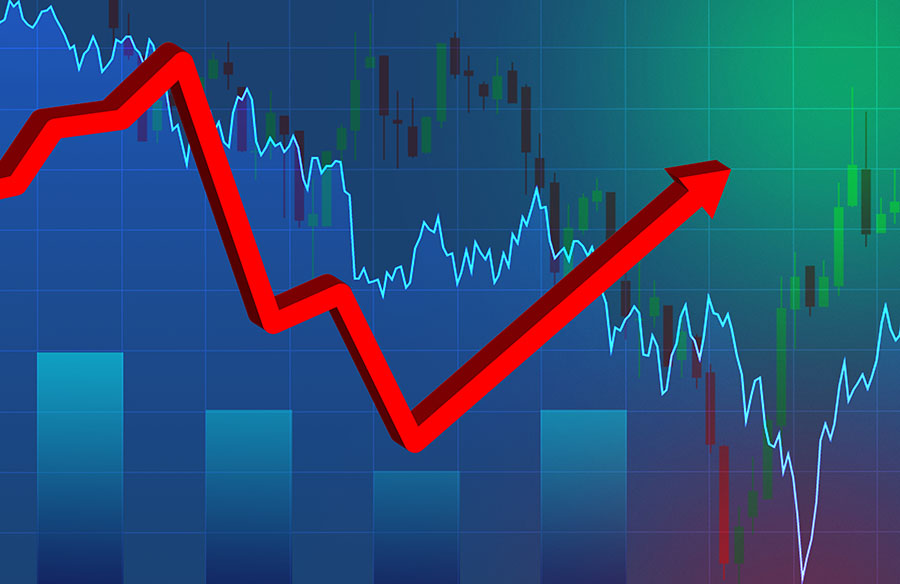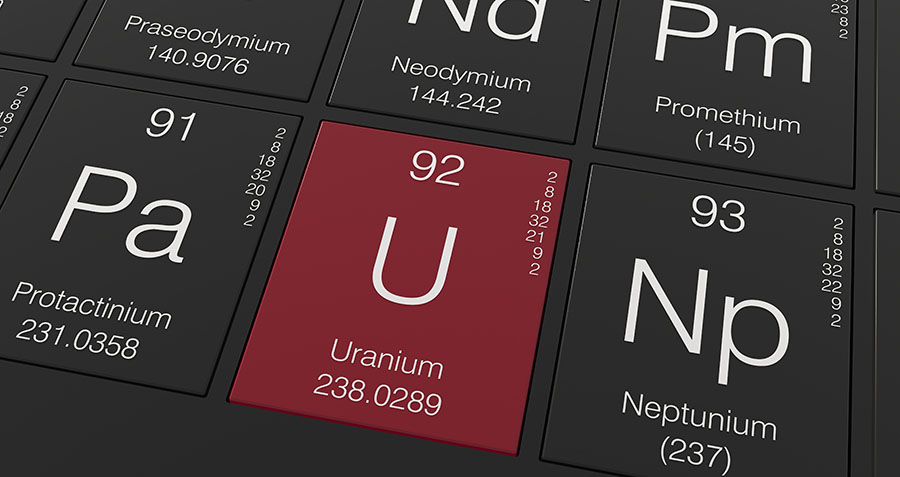The Energy Report: Are low prices for fossil fuels winnowing out the weaker juniors and enhancing the potential of stronger firms positioned to survive the downturn?
Etienne Moshevich: Yes, they most definitely are. When times were good, too many companies borrowed money against future cash flows, and now have no chance of paying the money back because of the downturn in the price of oil. Few companies reacted early enough—they are overleveraged and their shareholders are paying the price.
TER: What makes an energy company strong in the current pricing environment?
EM: Balance sheets. I am focusing my attention on companies with positive cash flows and low debt-to-cash flow multiples. These companies can withstand the volatility in the oil price.
TER: What makes you confident that the market for small-cap and micro-cap companies will improve in the near future?
EM: Our demand for oil isn't going anywhere. While I understand there are many other energy sources out there, nothing can replace the world's need for oil for the next 15 to 20 years. I see this as a huge opportunity for investors.
That said, I believe investors need to focus their attention on companies with top-notch management teams that have successfully built shareholder value, because in my mind, a lot of money could be made in the next two to three years by investors with time and money on their side. I don't know when the market will turn, but it ultimately will, and when it does, many of the companies we see today won't be trading at such low valuations.
TER: Who is drilling successfully in the shale oil patch?
EM: I follow Blackbird Energy Inc. (BBI:TSX.V) very closely. The stock is up more than 50% this month, and I believe this is only the beginning.
There are a couple things that make this company so special. The first, I must say, is CEO Garth Braun's passion. Braun's vision has translated into his assembling a team of equally passionate and industry-leading professionals who appear to not be afraid to build a large, successful company.
"Blackbird Energy Inc.'s wells are in a position to make money; the company is truly ready to pop."
The Blackbird team has positioned the company in a Montney fairway that, only two years ago, was mostly undeveloped, but today stands as one of the most prolific liquids-rich fairways in North America. Why does being in a liquids-rich fairway matter? It comes down to things everyone knows: economics and viability. Blackbird's 47 sections sit in a region where wells, by my calculation, still produce a 15% internal rate of return (IRR) at $50/barrel ($50/bbl) oil and $3/Mcf. These economics will go up exponentially as oil prices begin to rise, but even at current commodity prices, Blackbird's wells are in a position to make money, which can't be said for a vast majority of resource projects in the world.
Blackbird's very calculated and deliberate moves have also gained the attention of very well-respected Canadian oil and gas analysts such as Dan Payne at National Bank, who just picked up coverage of Blackbird with a Speculative Outperform rating and a $0.70/share price target. In his report, Payne lays out that, with successful results from its Upper and Middle Montney wells, Blackbird will unlock unrisked value of $1.18 billion ($1.18B).
Another reason Blackbird is set to outperform comes down to its torque. Blackbird is currently completing two Montney wells that, if successful, will prove up more than 20 sections of land from a geological standpoint. Once this has occurred, Blackbird is off to the races, being one of the only junior companies with a large, 100%-owned land position that is currently 100% unbooked. On 20 sections of land alone, Blackbird can deploy approximately 240 wells—four wells per zone for each of its three zones. If we go one step further and add a net present value discounted at 10% (NPV10) of $4 million ($4M) per well, we arrive at $960M in value. This company is truly ready to pop.
Furthermore, the total well inventory for the 47-section contiguous block at Elmworth has the potential for up to 564 wells, which shows tremendous running room. For most companies this would be enough, but Braun's long-term growth projections for Blackbird lead me to believe that we will see continued growth and aggregation with respect to its acreage. This hunch is further validated by the company's strong balance sheet post drilling and completions (approximately $27M) and Blackbird's strategy of acquiring land at below market cost through its drilling land validation strategy. Blackbird is in a unique position in a challenged resource market, as it stands to add a tremendous amount of value once results are out.
"Madalena Energy Inc.'s has a solid financial position and an even better land base in what could be the biggest shale play in the world."
Terrace Energy Corp. (TZR:TSX.V) also presents tremendous value for investors at current levels. With over $30M in cash and practically no debt other than small interest payments to note holders, Terrace seems practically bulletproof in this market. The company is focused on providing investors with exposure to the Eagle Ford, Buda and Olmos formations in the prolific South Texas area. Using strong regional knowledge, state-of-the-art technology and unconventional drilling techniques, the company has been able to target emerging opportunities in the South Texas fairway and is perfectly positioned to drive major value for shareholders in 2015.
The Terrace team is composed of seasoned technical experts and proven entrepreneurs with outstanding track records of creating major shareholder value. In his last deal, with the sale of one of his private oil and gas assets, president and CEO Dave Gibbs created more than $37M in pre-tax profit for his shareholders. He started from scratch and was able to build a multimillion-dollar business. Imagine what he can do with more than $30M in cash and oil at historic lows.
Cardiff Energy Corp. (CRS:TSX.V) is another company that should be on investors' radar screens. The company is focused on building value through horizontal drilling in Runnels County, Texas, and just signed a definitive agreement with two joint venture partners to drill a horizontal well that, if successful, could drive major value for shareholders. The cost to drill and complete this well is around $1.3M. Martin Energies and Archer Petroleum (ARK:TSX.V) will fund two-thirds of the cost to earn a 50% working interest in the well.
What's exciting about this is that the team is targeting a formation that is similar to another major field in Texas called the Austin Chalk, where initial production of comparable horizontal wells have been around 1,500 barrels of oil per day. You can see why Cardiff is taking a shot with this one. The upside is massive if the company does, in fact, hit, and the downside is fairly limited since the two partners bear 66% of the cost. Cardiff should start to drill sometime in March, so I expect to see more momentum come in this play in the next month or so.
TER: What other hydraulic fracturing companies are doing well?
EM: Leucrotta Exploration Inc. (CVE:LXE) came about when Crocotta Energy got taken over by Long Run Exploration in May 2014, and spun out the Montney assets into a new company called Leucrotta. I have a ton of respect and belief in Rob Zakresky, company president and CEO, and Nolan Chicoine, the chief financial officer (CFO), who have both been able to create tremendous value for their shareholders. Crocotta started as a private company seven years ago, with production of 100 barrels of oil equivalent per day (100 boe/d), and grew to 9,800 boe/d. Zakresky and Chicoine were the founders of the company and grew it to an eventual buyout for $357M. I have no doubt they will be able to do the same with Leucrotta.
The company is sitting on more than $27M in cash as of Dec. 31, 2014, and the deal flow it is seeing is incredible. Like I've told my subscribers, this is the time to go shopping for assets trading at low valuations, and there is no one I'd rather bet on than Zakresky and Chicoine. There is no doubt in my mind that Zakresky and his team will be able to take advantage of the many opportunities being presented to them.
TER: Oil prices in Argentina seem to be ahead of the rest of the world. Who is taking advantage of that?
EM: Madalena Energy Inc. (MVN:TSX.V; MDLNF:OTCPK) is a story I've been following for a couple years, and I feel there is no better time to be looking at this company than right now. What many investors don't realize is that oil producers are getting around $76–77/bbl for their supplies in Argentina, even while West Texas Intermediate (WTI) trades at about $50/bbl. Prices in Argentina are pegged, which is one of the reasons the country is so attractive for oil and gas companies in today's energy marketplace.
"Companies with positive cash flows and low debt-to-cash flow multiples can withstand the volatility in the oil price."
With a solid financial position and an even better land base in what could be the biggest shale play in the world, driven by the Vaca Muerta and Lower Agrio shales, Madalena is well positioned to focus on derisking its unconventional shale assets and strategic resource plays in the Neuquén Basin. The assets in Argentina are wedged between some of the biggest players in the world, such as Chevron Corp. (CVX:NYSE), YPF, Wintershall, Petronas, Royal Dutch Shell Plc (RDS.A:NYSE; RDS.B:NYSE), Exxon Mobil Corp. (XOM:NYSE) and Total S.A. (TOT:NYSE) With its substantial land position in one of the hottest areas in the world, the only way to get a sizeable stake in the area without disrupting another major is through Madalena.
With Madalena focused on drilling four unconventional resource plays in 2015, including the Loma Montosa oil resource play, Vaca Muerta shale, Lower Agrio shale, and Mulichinco liquids-rich play, the company is well positioned to unlock value from its large-in-place strategic assets. With two horizontals currently being drilled in Argentina and the stock trading well below the company's conventional-only reserves value of ~$200M in NPV10, investors are getting the company's prime unconventional shale assets (34.8B barrels of oil equivalent of total petroleum in place net to Madalena) for free at the current trading levels.
TER: What other South American oil plays do you favor?
EM: Jagercor Energy Corp. (EM:CNSX; JAMTF:OTC) is another pure Argentine play operated by former YPF executives. Edgardo Russo, the CEO, has substantial experience building and developing fields in Argentina, and was successful in drilling Jagercor's first three wells. The company has an option to drill an additional five wells, which should be very accretive to shareholders. The company is currently producing and generating revenue, and should pay off these wells in around 18 months. Russo was able to attract Alejandro Chernacov, YPF's former investor relations manager, as the new company CFO. Chernacov will be introducing the company to many of his contacts in the U.S. and exposing the story to various pure-play Argentinean-focused funds.
TER: What cost-cutting measures can oil and gas firms take to survive? What particular firms come to mind for efficiency?
EM: Many companies are implementing cost-cutting measures to ensure that they're able to survive the downturn. One company that is doing a remarkable job is Hemisphere Energy Corp. (HME:TSX.V). Hemisphere announced record production last month, averaging over 1,000 boe/d, which not only proves the viability of the asset but also gives confidence to shareholders that the only reason Hemisphere's stock price has taken a haircut is because of the overall market, which no one can control. To minimize risk and control the treasury, Hemisphere has decided to offset its exposure and postpone drill plans for now. The company has no drilling commitments or material land expiries in 2015, and it has deferred drilling activity until the second half of 2015.
"Investors need to focus their attention on companies with top-notch management teams that have successfully built shareholder value."
Even at current oil prices, Hemisphere's production remains cash-flow positive due to low operating costs. Hemisphere is working to optimize its production base in the Jenner and Atlee Buffalo core areas while minimizing operating costs, so once the market does turn, the company will be perfectly positioned to take advantage of it. Investors need to know that the companies they've invested in are able to survive, and I have no doubt that Hemisphere will not only survive, but also flourish once the market moves.
TER: Is anybody developing legacy oil fields with any success?
EM: Yes—Jericho Oil Corp. (JCO:TSX.V) is doing just that. Jericho focuses on shallow, vertical, low-risk stripper wells that produce 10 boe/d or less within historically producing, mature oil fields that have been neglected or abandoned. The company has been successful with its operations in Kansas, and is slowly acquiring similar assets at substantial discounts with the $4.5M it has in its treasury.
Jericho can still make money at today's prices. Injector wells cost approximately $27,000 ($27K) per well, while producer wells in this area cost around $35K per well, which is very cheap. With $4.5M in working capital, the company can easily position itself as a powerhouse in the area. Internal rates of return on these wells are around 76% based on $90+/bbl oil, which obviously isn't where we are at today but can definitely be reached in a few years' time. The company's main focus is to target wells with IRRs of 35% or better. As an investor, to get excited over the project, you need to get the small production figures out of your head. The company is close to breaking even with its current production levels and has a ton more wells to drill. This ensures constant news flow, high margins and a high probability of becoming profitable in 2015. Jericho can not only withstand the downturn in the oil market, but should also see a substantial move to the upside once the overall markets move back up.
TER: What about uranium? Are there any plays in that space worth watching?
EM: There are two juniors that I'm currently keeping a very close eye on: Lakeland Resources Inc. (LK:TSX.V) and Skyharbour Resources Ltd. (SYH:TSX.V). Both have acquired quality assets and have raised substantial capital to drill and hopefully prove up a resource. Lakeland and Skyharbour are two of the smallest juniors hoping to ride the next uranium wave.
Not many companies have been able to raise the necessary cash to drill, but the ones that have have been very successful. We saw how successful both Fission Uranium Corp. (FCU:TSX) and NexGen Energy Ltd. (NXE:TSX.V) have been with their drill campaigns at Patterson Lake South (PLS), and Skyharbour will be conducting a field program with its syndicate partners around the PLS discovery area that should gain a lot of traction in the market.
Skyharbour's chairman, Jim Pettit, has just come off a good win with Bayfield Ventures Corp. and is now concentrating his efforts on Skyharbour. Over the last three years, Bayfield went from a low of $0.12/share to a high of $0.61/share, and eventually got bought out by New Gold Inc. (NGD:TSX; NGD:NYSE.MKT) for $16.6M. Jordan Trimble, CFA, the company's president and CEO, is a hungry and passionate leader who will do everything it takes to make the company a success. He is surrounded by industry veterans like Rick Kusmirski, who ran JNR Resources and led the company to an eventual buyout by Denison Mines.
Skyharbour is also gearing up for a drill program at its flagship Falcon Point property on the east side of the basin, where historical work has delineated a near-surface uranium and thorium deposit open along strike and at depth. These two field programs in different regions of the basin should provide ample news flow and catalysts for the company over the next few months.
Lakeland recently raised more than $2M and has a portfolio of assets that it will look to joint venture or develop over time. The company's stock ran to the mid-$0.20/share range last year around this time, based on all the drilling around the Athabasca area, and I won't be surprised to see it move again once the company publishes drill results from its campaign on Gibbons Creek. Lakeland's field exploration work came out with very positive results, which pushed the team to start the drill program. If successful, this could be the next talk of the town.
TER: Thanks so much for your time.
 Etienne Moshevich is the editor of Alphastox.com, a junior market newsletter featuring companies with the very best in management teams, projects and capital structures. Moshevich is also the president of Transcend Resource Group, an investor relations company based in Vancouver, B.C., specializing in exposing undervalued companies to the marketplace. With a degree in economics, Moshevich has helped finance many successful mining, oil and gas, technology and biotech companies over the years, many of which have rewarded shareholders with substantial returns.
Etienne Moshevich is the editor of Alphastox.com, a junior market newsletter featuring companies with the very best in management teams, projects and capital structures. Moshevich is also the president of Transcend Resource Group, an investor relations company based in Vancouver, B.C., specializing in exposing undervalued companies to the marketplace. With a degree in economics, Moshevich has helped finance many successful mining, oil and gas, technology and biotech companies over the years, many of which have rewarded shareholders with substantial returns.
Read what other experts are saying about:
Want to read more Energy Report interviews like this? Sign up for our free e-newsletter, and you'll learn when new articles have been published. To see recent interviews with industry analysts and commentators, visit our Streetwise Interviews page.
DISCLOSURE:
1) Peter Byrne conducted this interview for Streetwise Reports LLC, publisher of The Gold Report, The Energy Report, The Life Sciences Report and The Mining Report, and provides services to Streetwise Reports as an independent contractor. He owns, or his family owns, shares of the following companies mentioned in this interview: None.
2) The following companies mentioned in the interview are sponsors of Streetwise Reports: Madalena Energy Inc., Blackbird Energy Inc., Royal Dutch Shell Plc, Fission Uranium Corp., Hemisphere Energy Corp. The companies mentioned in this interview were not involved in any aspect of the interview preparation or post-interview editing so the expert could speak independently about the sector. Streetwise Reports does not accept stock in exchange for its services.
3) Etienne Moshevich: I own, or my family owns, shares of the following companies mentioned in this interview: Blackbird Energy Inc., Madalena Energy Inc., Skyharbour Resources Ltd., Lakeland Resources Inc., Jagercor Energy Corp. and Leucrotta Exploration Inc. I personally am, or my family is, paid by the following companies mentioned in this interview: None. My company has a financial relationship with the following companies mentioned in this interview: Blackbird Energy Inc., Madalena Energy Inc., Jericho Oil Corp., Cardiff Energy Corp., Jagercor Energy Corp., Lakeland Resources Inc. and Skyharbour Resources Ltd. I was not paid by Streetwise Reports for participating in this interview. Comments and opinions expressed are my own comments and opinions. I determined and had final say over which companies would be included in the interview based on my research, understanding of the sector and interview theme. I had the opportunity to review the interview for accuracy as of the date of the interview and am responsible for the content of the interview.
4) Interviews are edited for clarity. Streetwise Reports does not make editorial comments or change experts' statements without their consent.
5) The interview does not constitute investment advice. Each reader is encouraged to consult with his or her individual financial professional and any action a reader takes as a result of information presented here is his or her own responsibility. By opening this page, each reader accepts and agrees to Streetwise Reports' terms of use and full legal disclaimer.
6) From time to time, Streetwise Reports LLC and its directors, officers, employees or members of their families, as well as persons interviewed for articles and interviews on the site, may have a long or short position in securities mentioned. Directors, officers, employees or members of their families are prohibited from making purchases and/or sales of those securities in the open market or otherwise during the up-to-four-week interval from the time of the interview until after it publishes.




